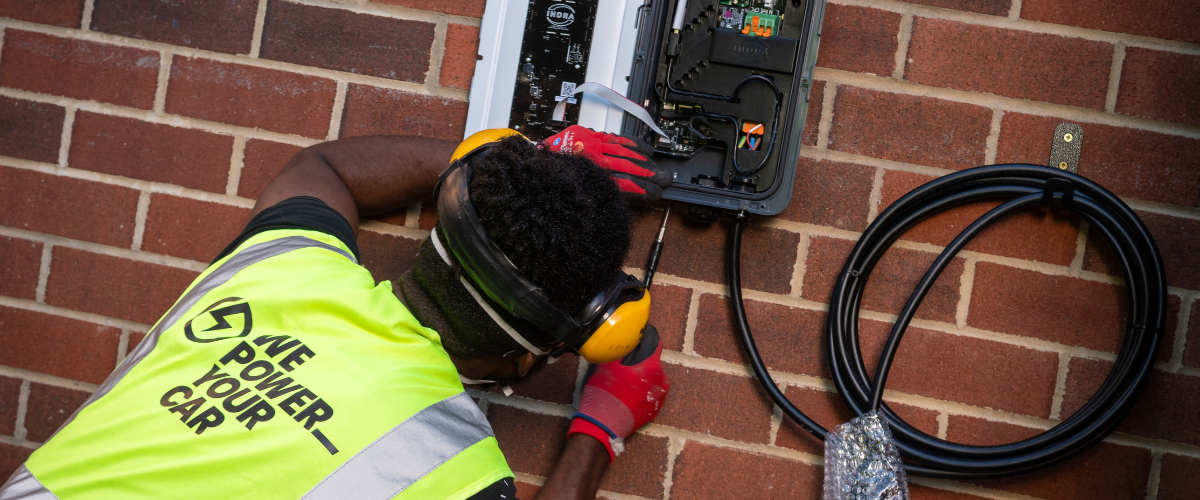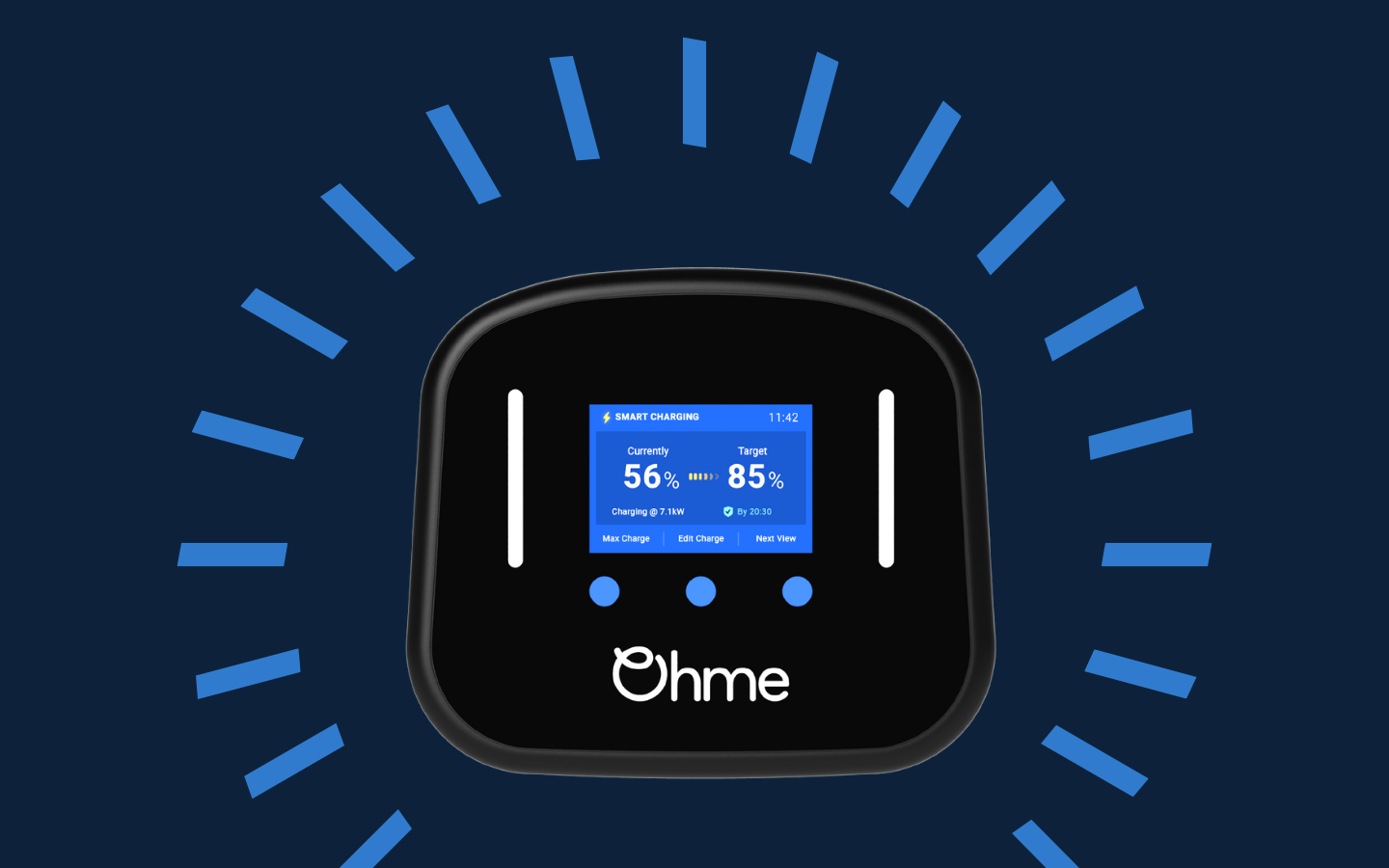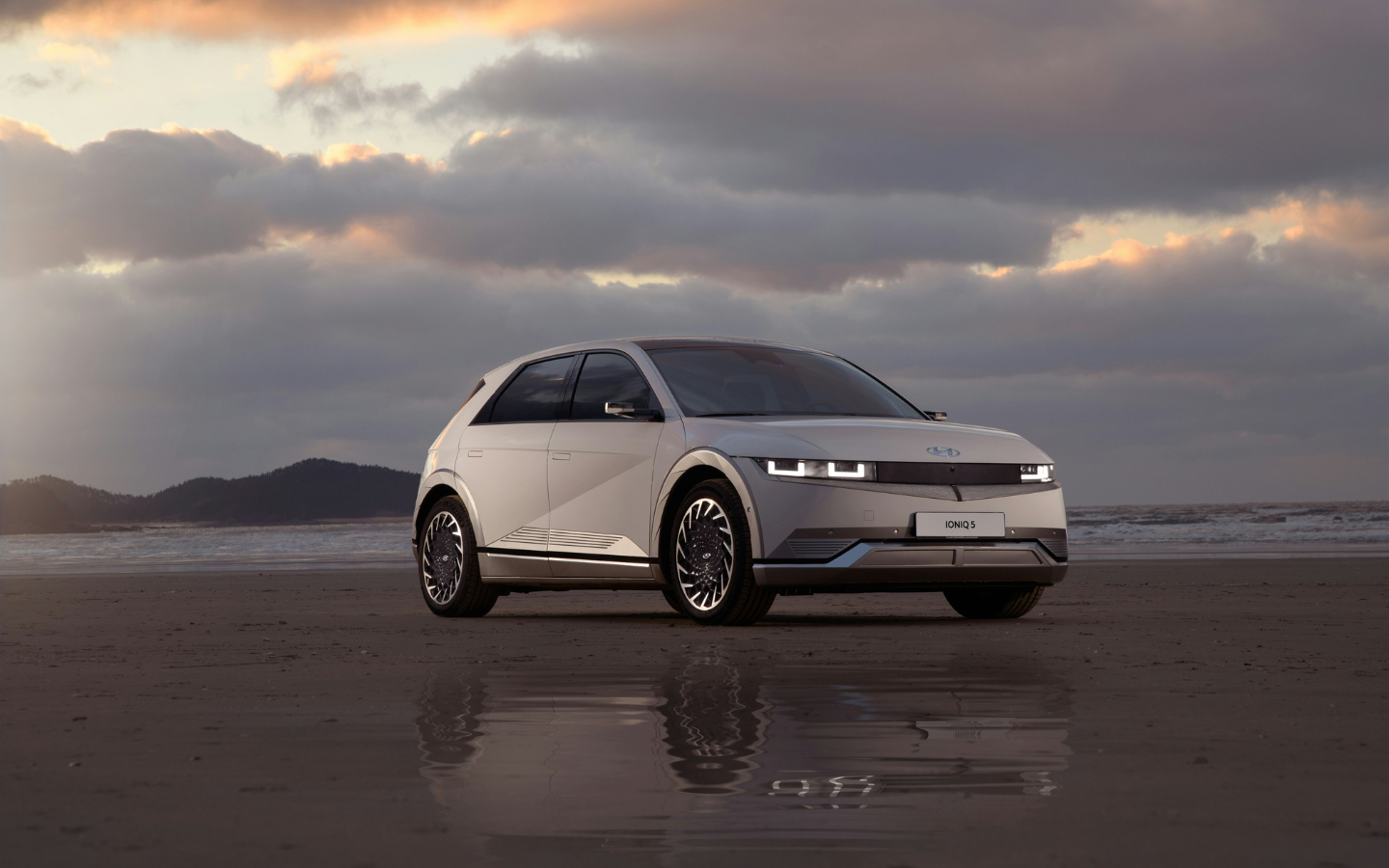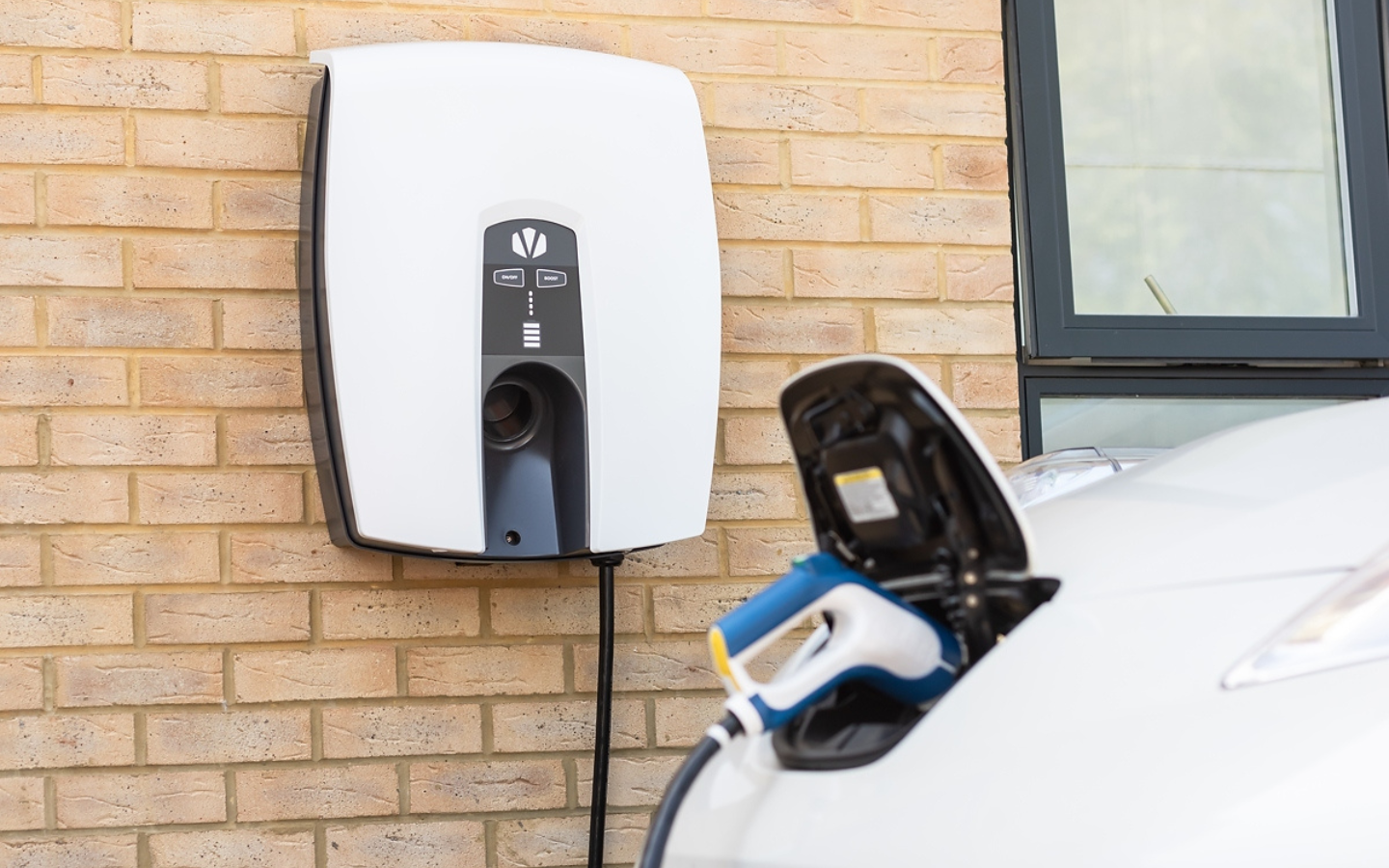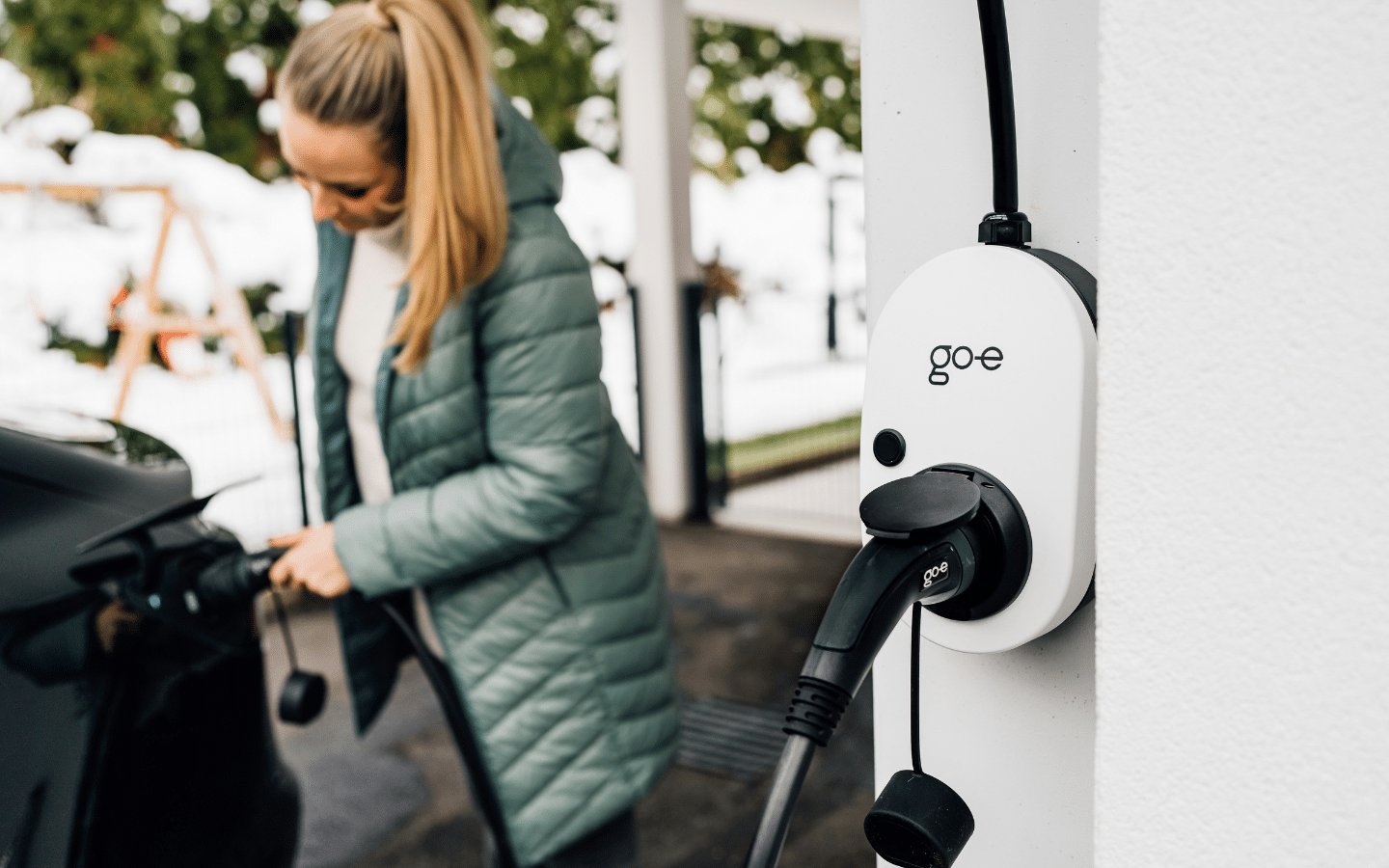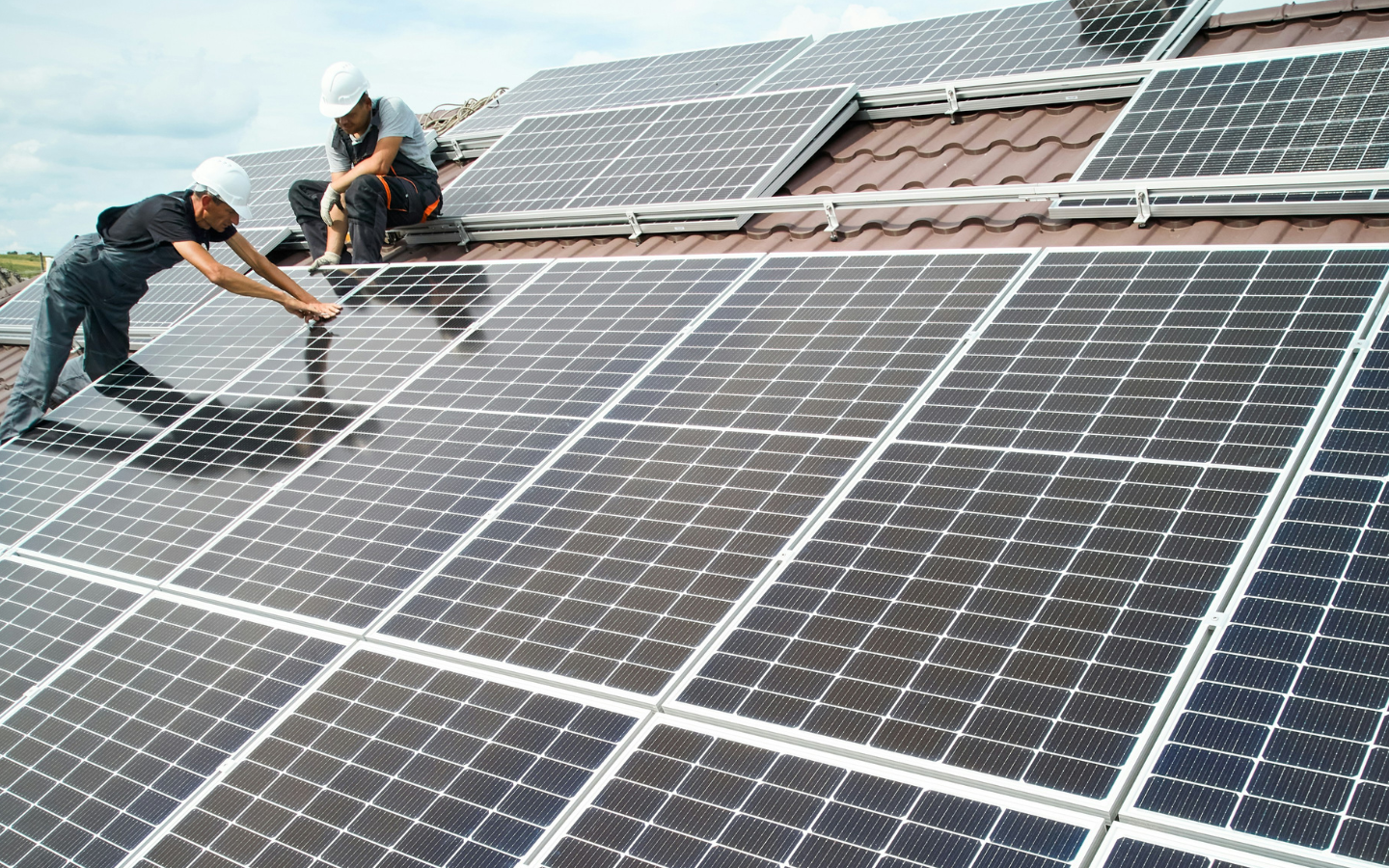

Solar EV Chargers 101: How to Charge with Solar Panels
EV owners: Have you ever wondered whether you can charge your electric car with solar panels? Well, you’re in luck, solar electric car charging is entirely viable and gaining momentum.
In fact, with the renewable energy sector booming (1.6 million homes with solar panels), and the uptake in battery electric cars skyrocketing (1,750,000 to date), combining these two powerhouses together equals a drastically cheaper, cleaner charging lifestyle.
Here’s how.
Summary:
- Yes, you can charge your electric car with solar panels. But to do so, you need: a solar PV system, a solar-compatible EV charger, and an electric car at your disposal.
- Around 8–10 solar panels can provide enough charging power for a standard-sized electric car.
- Any electric car works with solar panel car chargers, from Tesla to Nissan Leaf – so long as it’s a battery electric car.
- Solar EV chargers have a number of benefits: Cut carbon emissions, lower electricity bills and charging costs, increase property value, improve grid stability, and have grid independence.
- Solar charging timing varies, like any charger and its charging speed.
- Our favourite solar EV chargers in the UK include: Myenergi Zappi, VCHRGD Seven Pro, Indra Smart Lux, Ohme Home Pro and Ohme ePod.
- A caveat to solar-powered car chargers – the installation costs. Installing solar panels at home is expensive, especially when also buying a solar EV charger at the same time.
What is solar electric car charging?
Exactly what it says on the tin, solar EV charging means using energy generated from your solar PV system to charge your electric vehicle. Instead of relying solely on electricity from the grid, you can mix and match. Top up with solar energy, electricity from the grid or a blend of both.
To sun or not to sun: Why invest in a solar EV charger?
Here’s why UK electric cars drivers are nodding yes to a shining future of solar EV chargers:
- Slash carbon emissions: It’s likely you chose an EV for cleaner, greener driving. Add in a solar electric car charger, and you’re maximising your sustainable lifestyle. Topping up with entirely renewable energy and reducing your carbon footprint.
- Send electricity bills plummeting: After the solar panel installation, any solar-generated electricity comes at virtually zero marginal cost. Monthly bills will shrink, especially if you make use of EV tariffs when there isn’t enough solar energy available. Save money. Considerably.
- Increased property value: Electric car chargers already boost your property value. A smart solar EV charger and solar panels? That’s a double win for future buyers. One key figure quoted: solar panels can boost value by at least 14%.
- Grid stability: Support the UK’s electricity grid by relying less on the grid and more on solar rays.
- Grid independence: Solar panels generate your own power. Why is this important? It means you’re not at the mercy of the grid.
Power cut? No stress. You’ve already topped up during the day. Smart for the planet, smart for your home, and smart for you.
What do you need at home to charge with solar electricity?
To access sunny savings, here’s what you need:
- A solar photovoltaic system (solar panels and an inverter).
- A battery electric car. Any model will do, as long as the EV can plug in (certain hybrids won’t be compatible).
- A dedicated smart home EV charger that supports solar charging.
- Optional choice: Battery storage. Store and save to take advantage even when the sun isn’t shining.
How does a solar-powered EV charger work?
- Your solar panels soak up any available sunlight and convert the solar energy into Direct Current (DC).
- The solar inverter turns the DC into AC (Alternating Current). AC is the type of electrical current your home uses daily.
- The AC electricity flows into your distribution board, and any surplus solar energy leftover will pass to your solar-powered electric car charger.
- Now’s the time to charge. Plug in and voilà, clean, solar-converted energy is devoured by your EV.
How many solar panels do you need?
There’s no one-size-fits-all answer for how many solar panels you need to charge an electric car. That said, for your average battery electric car, the sweet spot is roughly eight to ten solar panels.
Keep in mind that these factors affect solar panel charging:
- the size of your EV’s battery (the bigger the battery, the more solar panels needed)
- how much solar electricity your home uses
- your location – do you live somewhere wet and windy? This can impact your solar charging
- Seasonal variation
Let’s take a closer look at solar charging times.
How many solar panels do you need to charge an electric car?
As mentioned above, the number of solar panels needed depends on your home setup and the size of your EV, but here’s a quick guide:
Electric Car Type |
Typical Battery Size |
Recommended Solar Panels |
Daily Solar kWh Needed |
| Small EV (e.g. Nissan Leaf) | 40 kWh | 8–10 panels | 25–35 kWh |
| Medium EV (e.g. Kia EV6) | 60 kWh | 10–12 panels | 35–45 kWh |
| Large EV (e.g. Tesla Model Y) | 75 kWh | 12–14 panels | 45–55 kWh |
Can any electric car be charged with solar energy?
It’s good news: you don’t need a “special EV model” to charge an EV with solar panels. As long as you’ve got the correct charging infrastructure (solar PV + solar-capable charger), any battery electric vehicle (EV) model will work.
Are solar panels enough to charge an electric car?
Realistically, no—it’s unlikely you will be able to fully charge your electric car from 0-100%. Enough solar energy isn’t generated. Think solar EV charging for top-ups, rather than full charges.
Do you need a special solar EV charger?
To charge and manage your solar electric car charging properly, you do need a solar EV charger. Solar-compatible or solar-ready are the phrases to look out for when researching home chargers.
What do these terms mean?
- Solar compatible EV charger: Can charge an electric car with a solar PV system, but is likely to need an add-on module, usually at an additional cost, such as a CT clamp.
- Solar-ready EV charger: These electric car chargers are built to handle solar charging from the day of installation, and usually include all the necessary parts in the price.
What solar EV chargers would you recommend?
Our top picks for solar EV chargers include:
- The VCHRGD Seven Pro
- MyEnergi Zappi
- Indra Smart Lux
- Ohme Home Pro and Ohme ePod
Power your savings with a solar EV charger.
Looking to make the most of your solar panel system? EV charging with solar electric vehicle chargers is the smart, sustainable way. Choose one of our market-leading solar EV chargers.
Whether you’re exploring your options or already have a specific charge point model in mind, our expert customer service team is here to help. Call us today on 03333 44 96 99 for free, friendly, and impartial advice.
With qualified, experienced and DBS-checked EV charger engineers across the UK, we provide nationwide installation and a truly first-class service from start to finish. For the complete lowdown to electric car charger installation, please read our guide.
Stay connected for the latest EV news, offers, and updates: follow us on Facebook, Instagram, Twitter, LinkedIn and YouTube.
